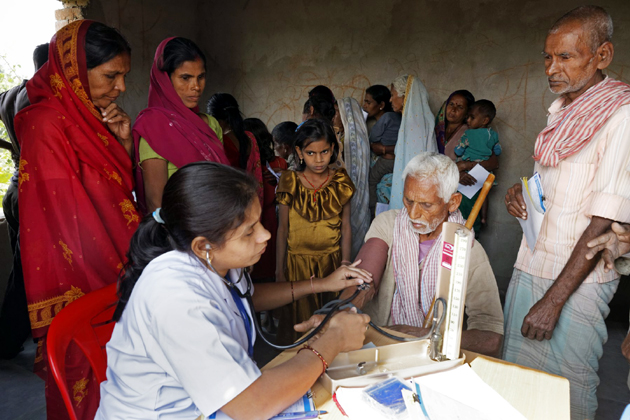
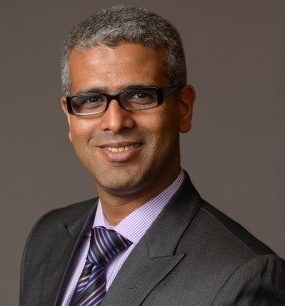
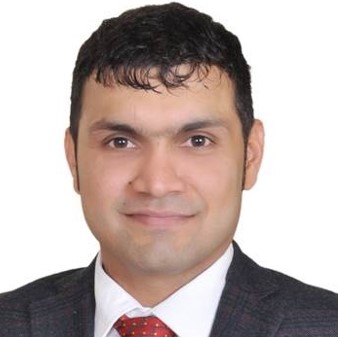
The COVID-19 pandemic has put the healthcare systems in every country under immense pressure, stretching resources and capacity. As such, responding to this public health crisis and successfully minimising its impact requires every health resource to be leveraged. Ensuring access to health services is the cornerstone of success. Failure to protect healthcare in this rapidly changing environment can have a long-lasting, devastating impact on population health and wellbeing.
Many high-income countries with mixed public-private health systems faced an unprecedented set of catastrophic events that left them on the verge of collapse. Early in the pandemic, States within the US relied on resources like supplies from other States to manage demand and postponed elective care to free up resources for COVID-19 patients. In Italy, when a bed in intensive care became available, doctors had to make difficult patient triaging decisions. Essential resources such as ventilators, protective equipment, and even medical staff became scarce. Doctors were forced to choose how to prioritise care to keep up with demand.
The current infrastructure is not geared to handle an epidemic of this proportion. The pandemic has forced us to look ahead and focus on strengthening India’s health infrastructure, specifically in rural areas where facilities are scarce.
In India, the first COVID-19 wave came and went leaving the healthcare system and infrastructure relatively unscathed. However, since the second wave, many States are grappling with shortages of medical oxygen, various medicines, hospital beds, and vaccines. The country is struggling to upgrade its healthcare system to meet the challenge and prepare for the future.
The sudden second wave has left the Government and its citizens in a fix. While rural India has a more structured public healthcare system with an extensive network of community health workers compared to urban health systems, it is more fragmented, with many people seeking care in private sector facilities. The current infrastructure is not geared to handle an epidemic of this proportion. The pandemic has forced us to look ahead and focus on strengthening India’s health infrastructure, specifically in rural areas where facilities are scarce.
How Companies Can Step Up to the COVID Challenge
Corporate Social Responsibility (CSR) refers to the practices and policies undertaken by corporations that are intended to have a positive influence on the world. India became the first country in the world to legally mandate CSR in 2014. COVID-19, and the devastating impact of the second wave in India, set the stage for significant shifts in the way companies view CSR and how to work effectively with the social sector.
CSR initiatives can help address pandemic healthcare challenges by:
Scaling up of capacity and infrastructure: Through partnerships with hospitals and 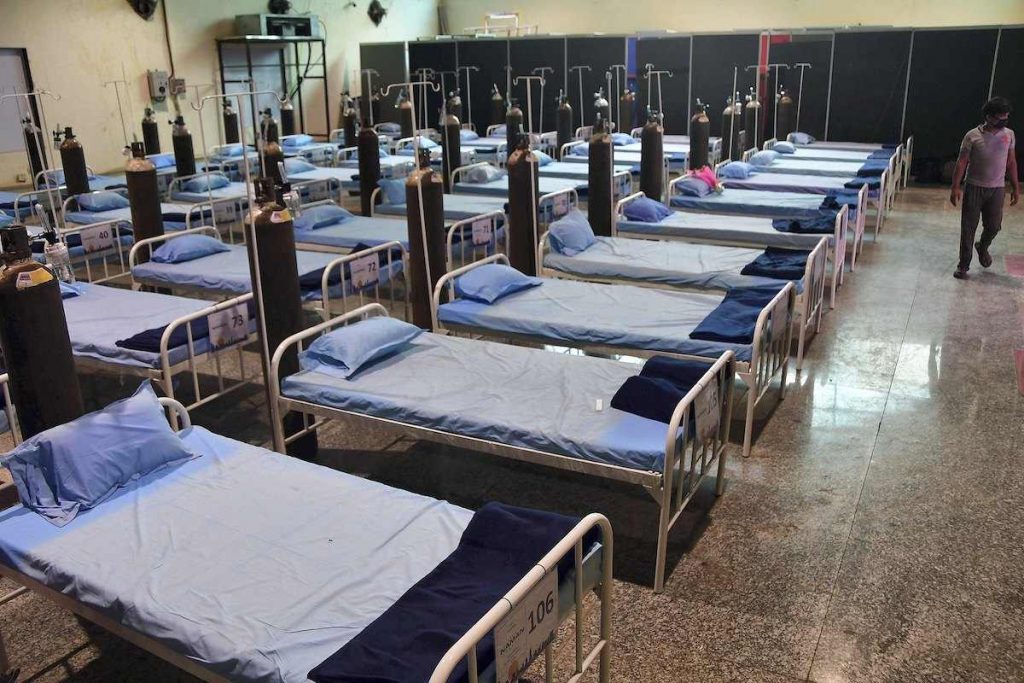 NGOs, CSR funds can be utilised to develop plans to increase the adequate capacity of acute care hospital beds and to help set up temporary COVID care centres/facilities to meet the second wave demand and to prepare for any future waves of the virus in rural areas. It is also essential to maintain adequate healthcare professional staffing by utilising contingency staffing models to manage these rural centres. This can also help support the ongoing COVID-19 immunisation drive.
NGOs, CSR funds can be utilised to develop plans to increase the adequate capacity of acute care hospital beds and to help set up temporary COVID care centres/facilities to meet the second wave demand and to prepare for any future waves of the virus in rural areas. It is also essential to maintain adequate healthcare professional staffing by utilising contingency staffing models to manage these rural centres. This can also help support the ongoing COVID-19 immunisation drive.
The Primary Health Care Centres (PHCs), the epicentre of the rural health delivery system, provide integrated curative and preventive healthcare. This is an area where corporations could make a significant impact through their CSR efforts by helping to rejuvenate these PHCs through upgradation with the latest technology and equipment and is ensuring that the staff on site is adequately trained to use these technologies.
Proactively managing supply and demand: It was devastating to witness the tragedy unfolding as people struggled to find available medical oxygen and other life-saving drugs for the treatment of their loved ones. The shortage of medical supplies was acutely felt across the country. It was heartening to see corporations stepping up with several CSR initiatives to procure and transport oxygen concentrators and support building oxygen generation plants.
Upgradation of equipment and upskilling of the health workforce: The current public health system lacks basic infrastructure facilities and is now overburdened by the 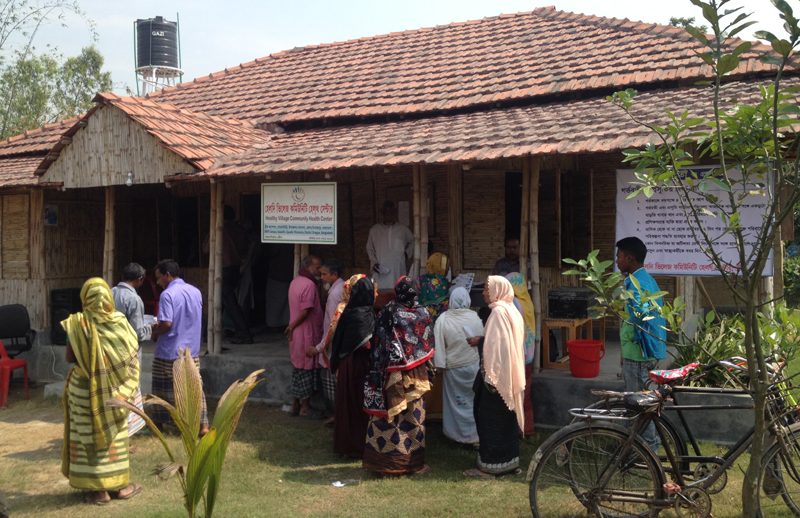 pandemic. The Primary Health Care Centres (PHCs), the epicentre of the rural health delivery system, provide integrated curative and preventive healthcare. However, the infrastructure is woefully inadequate to provide the desired quality of healthcare. This is an area where corporations could make a significant impact through their CSR efforts by helping to rejuvenate these PHCs through upgradation with the latest technology and equipment and is ensuring that the staff on site is adequately trained to use these technologies. This would avoid the situation we witnessed during the second wave when the Government provided many ventilators to hospitals in all districts but were rendered useless because there were no trained staff in these facilities to operate them.
pandemic. The Primary Health Care Centres (PHCs), the epicentre of the rural health delivery system, provide integrated curative and preventive healthcare. However, the infrastructure is woefully inadequate to provide the desired quality of healthcare. This is an area where corporations could make a significant impact through their CSR efforts by helping to rejuvenate these PHCs through upgradation with the latest technology and equipment and is ensuring that the staff on site is adequately trained to use these technologies. This would avoid the situation we witnessed during the second wave when the Government provided many ventilators to hospitals in all districts but were rendered useless because there were no trained staff in these facilities to operate them.
Ancillary support for frontline workers: A much-neglected issue during the 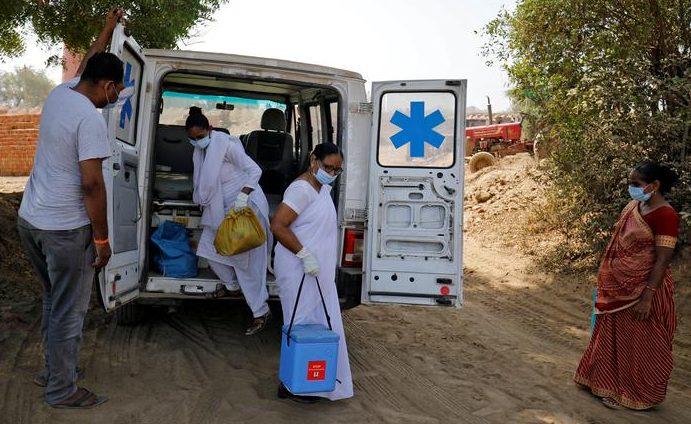 pandemic has been ancillary support like childcare and mental health services for frontline workers. These workers have done a stellar job despite working long hours under extreme stress. Corporations should provide CSR funding to help support frontline workers, e.g., refurbishing Anganwadi centres in rural areas and providing necessary counsellor support.
pandemic has been ancillary support like childcare and mental health services for frontline workers. These workers have done a stellar job despite working long hours under extreme stress. Corporations should provide CSR funding to help support frontline workers, e.g., refurbishing Anganwadi centres in rural areas and providing necessary counsellor support.
 The COVID-19 pandemic has provided an opportunity for corporations to rethink their CSR spend practices and how to respond effectively to an unprecedented health crisis. While companies have admirably stepped up to the challenge, more needs to be done. This should not be a one-time exercise but an ongoing commitment so that when the next health crisis strikes, we are better prepared to face it.
The COVID-19 pandemic has provided an opportunity for corporations to rethink their CSR spend practices and how to respond effectively to an unprecedented health crisis. While companies have admirably stepped up to the challenge, more needs to be done. This should not be a one-time exercise but an ongoing commitment so that when the next health crisis strikes, we are better prepared to face it.
Sanjay Vyas is the Executive Vice President and Managing Director at Parexel, India.
Annappa Kamath is a Senior Solutions Consultant Director at Parexel, India.
https://www.who.int/news-room/feature-stories/detail/attacks-on-health-care-in-the-context-of-covid-19
https://www.mckinsey.com/industries/healthcare-systems-and-services/our-insights/challenges-emerge-for-the-us-healthcare-system-as-covid-19-cases-rise

